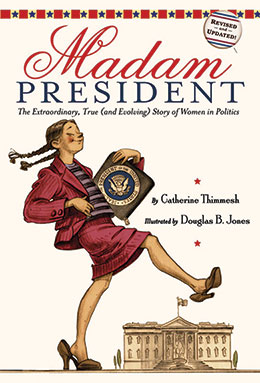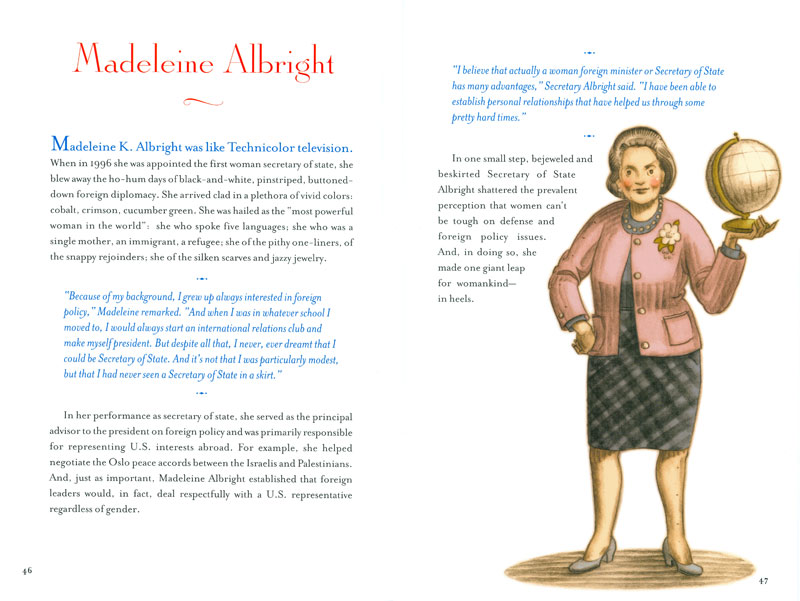Madam President
The Extraordinary, True (and Evolving) Story of Women in Politics
When Abigail Adams asked her husband to “Remember the Ladies,” women could not vote or own property in America. Some seventy years later, when Elizabeth Cady Stanton wrote, “To vote is the most sacred act of citizenship,” the government of the United States still did not treat women as equals, having yet to grant them the right to vote. But sixty-four years after that, Geraldine Ferraro declared, “We can do anything,” and became the first American woman to run for vice president on a major party ticket. Today, surely our country is ready for a leader who, as Elizabeth Dole said, “will call America to her better nature.” This captivating book illuminates the bravery and tenacity of the women who have come before us. With an engaging narrative, fascinating quotes, and elegant illustrations, it not only shows how far women have come but also reveals the many unsung roles women have played in political history. Step by step, these capable ladies have paved the way for our young leaders of tomorrow. They have enabled and empowered us to ask today: Well, why not the presidency?
Awards and Recognition
New York Times Notable Book 2004
Minnesota Book Award finalist
Reviews
“An impressive list of source material and a time line … A good choice in this election year, Madam President is an entertaining and informative choice.” (School Library Journal)
“Delightful and informative in equal parts, Thimmesh’s collective biography profiles women who took up the fight for women’s political rights. A story about a girl who is ridiculed for wanting to be president frames the introduction to the many women who have cleared the path that will eventually lead to a female president.” (Booklist)
“A sassily organized and argued rallying cry for girls-soon-to-be-women to stake a claim for Executive Office.” (Bulletin of the Center for Children)
“Thimmesh treats subjects from every point on the political spectrum with enthusiasm and respect…an excellent primer in international women’s political history.” (VOYA)




